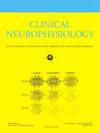fMRI 神经反馈用于调节与抑郁症相关的神经网络。
IF 3.6
3区 医学
Q1 CLINICAL NEUROLOGY
引用次数: 0
摘要
目的:功能磁共振成像(fMRI)神经反馈已成为一种潜在的抑郁症治疗方式,但人们对其作用机制知之甚少。本研究旨在探讨 fMRI 神经反馈在调节抑郁症神经网络方面的疗效:根据 PRISMA 指南,我们对抑郁症的 fMRI 神经反馈干预进行了系统性回顾。通过在多个数据库中进行全面检索,得出了 16 项符合条件的综述研究:综述结果表明,fMRI神经反馈可以调节BOLD活动,即使是在无策略方案和单次治疗中也是如此。针对特定区域的神经反馈可导致广泛神经网络(包括默认模式和执行控制网络)的连通性发生变化,其效果具有区域特异性。结论:fMRI神经反馈显示出作为抑郁症调节技术的前景,有可能诱导神经活动和抑郁症相关网络的连接性发生显著变化:该综述强调了标准化、可重复的神经反馈方案与对照组的必要性,以提高研究的可比性和可推广性。本文章由计算机程序翻译,如有差异,请以英文原文为准。
fMRI neurofeedback for the modulation of the neural networks associated with depression
Objectives
Functional magnetic resonance imaging (fMRI) neurofeedback has emerged as a potential treatment modality for depression, but little is known about its mechanism of action. This study aims to investigate the efficacy of fMRI neurofeedback in modulating neural networks in depression.
Methods
Following PRISMA guidelines, a systematic review was conducted focusing on fMRI neurofeedback interventions in depression. A comprehensive search across multiple databases yielded 16 eligible studies for review.
Results
The review demonstrated that fMRI neurofeedback can modulate BOLD activity even in strategy-free protocols and within a single session, with a significant learning effect evident over sessions. Neurofeedback targeting specific regions led to changes in connectivity across broad neural networks, including the default-mode and executive control networks, with effects being region-specific. However, methodological diversity and the absence of standardized protocols in the reviewed studies highlighted the need for more uniform research approaches.
Conclusions
fMRI neurofeedback shows promise as a modulatory technique for depression, with the potential to induce significant changes in neural activity and connectivity of networks implicated in depression.
Significance
The review underscores the necessity for standardized, reproducible neurofeedback protocols with control groups to enhance research comparability and generalizability.
求助全文
通过发布文献求助,成功后即可免费获取论文全文。
去求助
来源期刊

Clinical Neurophysiology
医学-临床神经学
CiteScore
8.70
自引率
6.40%
发文量
932
审稿时长
59 days
期刊介绍:
As of January 1999, The journal Electroencephalography and Clinical Neurophysiology, and its two sections Electromyography and Motor Control and Evoked Potentials have amalgamated to become this journal - Clinical Neurophysiology.
Clinical Neurophysiology is the official journal of the International Federation of Clinical Neurophysiology, the Brazilian Society of Clinical Neurophysiology, the Czech Society of Clinical Neurophysiology, the Italian Clinical Neurophysiology Society and the International Society of Intraoperative Neurophysiology.The journal is dedicated to fostering research and disseminating information on all aspects of both normal and abnormal functioning of the nervous system. The key aim of the publication is to disseminate scholarly reports on the pathophysiology underlying diseases of the central and peripheral nervous system of human patients. Clinical trials that use neurophysiological measures to document change are encouraged, as are manuscripts reporting data on integrated neuroimaging of central nervous function including, but not limited to, functional MRI, MEG, EEG, PET and other neuroimaging modalities.
 求助内容:
求助内容: 应助结果提醒方式:
应助结果提醒方式:


